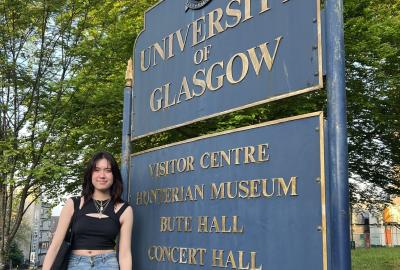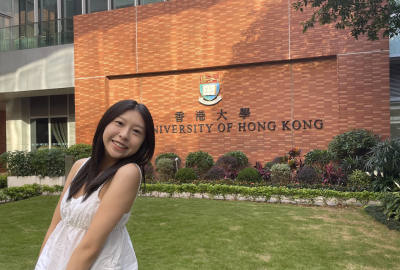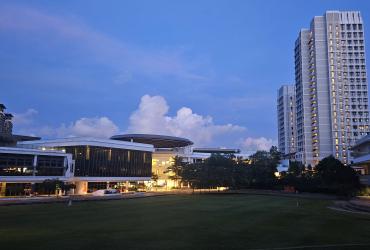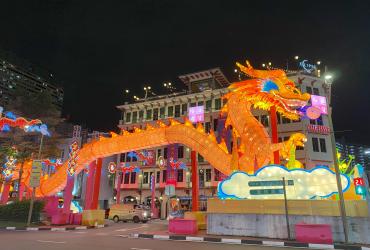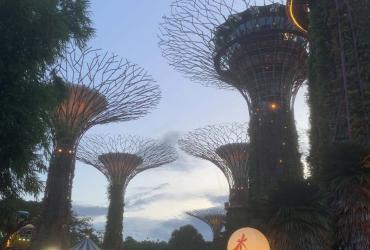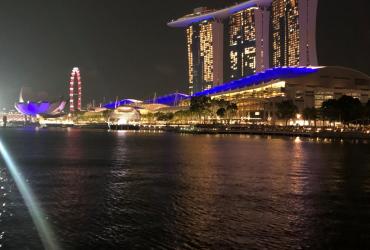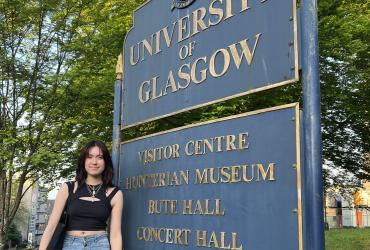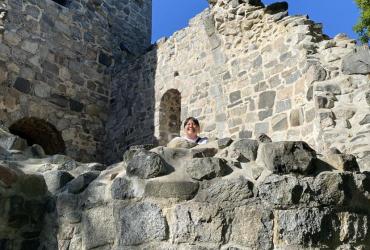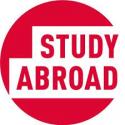Orientation and First Weeks
During the first few weeks at NUS, I attended a variety of workshops and activities that were geared towards helping exchange students into NUS and Singapore. These included day trips to notable areas like the Marina Bay Sands, night cycles around the city, hikes, campus tours and a Singlish workshop. All of these events helped me meet fellow exchange students, learn how to get where I needed to go quickly, understand the numerous food options available, and immerse myself as much as possible in the Singaporean lifestyle and culture.
Accommodation and Living
When researching accommodation options in Singapore, I learned that NUS did not guarantee student housing for exchange students, like most exchange programs worldwide. I investigated renting a 1-bedroom apartment in Singapore but quickly learned that private rental rates are more expensive than in Vancouver due to Singapore’s widespread public housing system and low land availability. However, exchange students are eligible to apply for on-campus student housing at NUS and I was fortunate enough to have been selected to stay at Cinnamon College in UTown. This residence hall had a mandatory meal plan which made planning for food cheap and convenient. No need to cook, do groceries or dishes, or spend money eating out. Our dining hall had 5 food options ranging from Malaysian, Indian, Chinese, Western and a noodle and salad bar. This allowed me to try foods from different regions for breakfast and dinner, prioritize my classes and engage in extracurricular activities and travel. For all future exchange students, I strongly recommend applying for student housing as early as possible as that will increase your chances of obtaining the student accommodation of your choice.
Learning and Adaptation
NUS is a very well-organized university. There are multiple considerations made in terms of infrastructure and academic planning to help NUS students succeed. Classes vary between in-person, remote, and hybrid formats, depending on which classes you take. Furthermore, class times would run anytime between 8 am and 8 pm allowing students a large window to take their classes. NUS also had a web service called NUSMods which provided services similar to SFU’s MySchedule, allowing students to plan well in advance their courses through course reviews, timetable generation, prerequisites and more. Furthermore, professors at NUS were very caring about their students. They made themselves greatly available, quickly responding to emails, providing frequent office hours, and offering to meet with struggling students late in the evening or on weekends to ensure they received any necessary support. Additionally, grading was made very clear, providing rubrics for all assignments and providing examples of A+ assignments for students to learn from. Class sizes ranged from large to small, anywhere between 100 people to 10.
Accomplishments and Challenges
Singapore, known for its cultural diversity, made it a prime location for me to strengthen my intercultural sensitivity, understanding, and communication. Initially, it was sometimes difficult to understand what local Singaporeans were saying to me because they have their own version of English, known as Singlish. Singlish speakers often reduce their statements to a few keywords or expressions that would simplify communication with others. As a newcomer, learning to interpret these expressions and understand the varying tones was a bit of a challenge at the start, but became easier the more I immersed myself with locals. Eventually, I learned to adopt these expressions and speak a bit better Singlish than before. Moreover, prior to this exchange, I had not had the opportunity to travel internationally for several years and had forgotten the wide range of skill sets that you can develop when travelling. As such, this exchange enabled me to become more adept in social environments, learn how to travel by myself internationally, grow my confidence, and connect with industry professionals on the global stage.
Social and Extracurricular Activities
As an exchange student, taking part in social and extracurricular activities falls high on the priority list after health and academics. For me, this took form through my suitemates who lived with me on campus. I was staying in an apartment suite with 5 peers 4 of which were also exchange students and one was a local NUS student. I was very fortunate because we quickly bonded, joining an MMA club on campus together, going to the local gym to train, getting food together at the dining hall, late night chats, telling jokes and even going to the music room and jamming out for a couple of hours. Having this friend group helped me quickly grow my network, explore Singapore and develop myself personally. In addition to this, I also participated in occasional events including going to the Singapore Zoo, playing Spikeball and Soccer in the UTown green, and had the opportunity to travel to a few of the surrounding countries with new friends.

